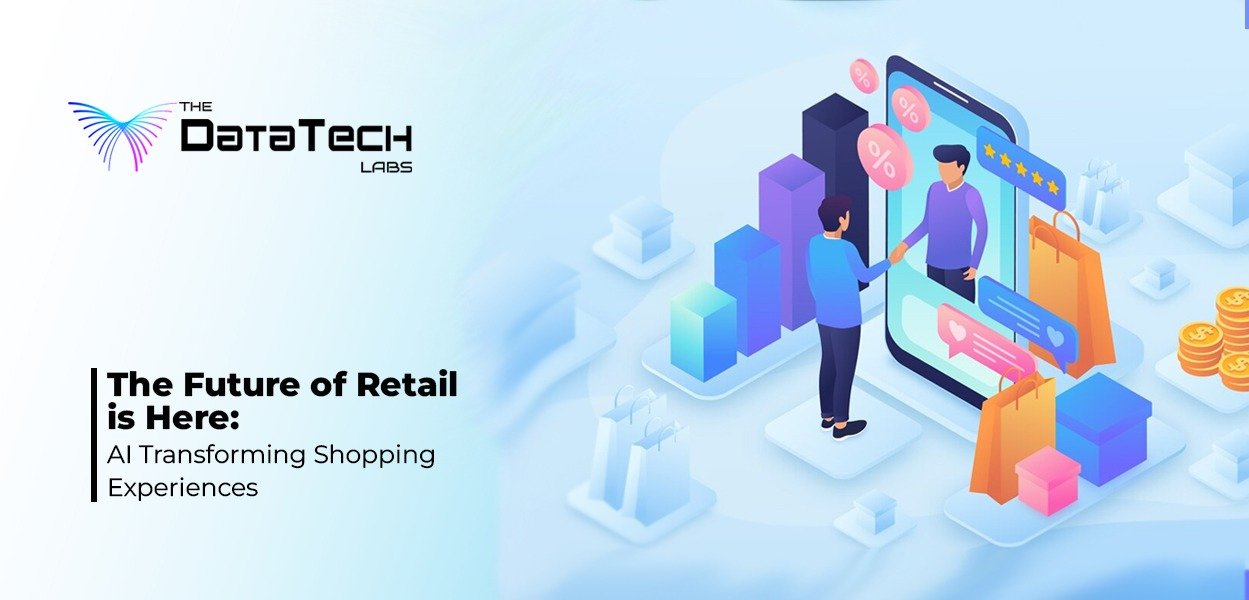The Future of Retail is Here: AI Transforming Shopping Experiences
Artificial Intelligence (AI) has evolved from a futuristic concept to a ubiquitous part of our everyday lives. The impact of AI on various industries is profound, and retail is no exception. With its adaptability and competitive edge, AI is revolutionizing the retail industry, offering personalized shopping experiences, operational efficiency, and enhanced decision-making.
AI algorithms can analyze vast amounts of data to reveal patterns, trends, and associations, providing insights that can drive decision-making. In the context of retail, these capabilities are being harnessed to understand customer preferences, optimize inventory, and streamline operations.
According to a study by Capgemini, by the end of 2021, the retail sector spent over $7.3 billion on AI, and the benefits are tangible. Retailers using AI are seeing up to a 60% reduction in losses due to out-of-stock items, a 40% reduction in inventory costs, and a 2% increase in overall revenue.
Let’s examine three examples from the USA, India, and the Middle East and Africa (MEA) region that illustrate the transformative impact of AI in retail.
In the USA, Amazon, a giant in the retail industry, uses AI for a myriad of applications, from personalized recommendations to inventory management, and even for their cashier-less “Amazon Go” stores. By using machine learning algorithms, Amazon offers customers a personalized shopping experience, enhancing customer satisfaction and driving sales.
India’s e-commerce platform, Flipkart, uses AI for personalized shopping experiences, fraud detection, and customer service. Their ‘AI for India’ initiative focuses on solving complex problems unique to India’s retail landscape. With AI, Flipkart has managed to improve the efficiency of its supply chain, resulting in faster deliveries and better customer service.
In the MEA region, South African retailer Pick n Pay has partnered with Israeli startup Everseen to employ AI in reducing checkout errors. This has not only improved the checkout process for customers but has also resulted in significant cost savings for the retailer.
AI’s adaptability is evident in these examples. Whether it’s personalizing product recommendations based on individual shopping habits, adjusting inventory in real-time based on sales data, or detecting checkout errors, AI is able to adjust and respond rapidly to different situations and tasks.
AI also provides a competitive edge for retailers. As per a report by McKinsey, companies implementing AI in their operations have the potential to accrue an additional 1.2% in economic output annually. Given the thin profit margins in the retail sector, this increase can provide a significant competitive advantage.
However, the integration of AI in retail does come with challenges. These include data privacy concerns, technical complexity, and the need for substantial investment. As the retail industry navigates its AI journey, it is critical to address these challenges while harnessing the benefits of AI.
Let’s delve deeper into the ways AI is transforming the retail industry in 2023.
Personalized Shopping Experience: AI analyzes customer data, including past purchases, browsing history, and interactions, to deliver personalized product recommendations. This personalization significantly boosts customer engagement and satisfaction. As per a report by Salesforce, personalized experiences drive a 20% increxxase in customer satisfaction rates.
Inventory Management: AI algorithms analyze sales data to predict demand, helping retailers optimize their inventory. This results in significant cost savings, as businesses can avoid overstocking or understocking. According to IBM, businesses using AI for inventory management have reduced their inventory costs by 25% on average in 2023.
Automated Customer Service: AI-powered chatbots provide round-the-clock customer service, answering queries, resolving issues, and even assisting in purchases. According to a report by Gartner, by 2023, 30% of all customer interactions are being handled by AI.
Fraud Detection: AI can analyze transaction data to identify patterns and anomalies that could signal fraudulent activity. This helps retailers minimize losses due to fraud. The Association of Certified Fraud Examiners (ACFE) reports that companies using AI for fraud detection have reduced their fraud losses by an average of 25% in 2023.
Dynamic Pricing: AI algorithms analyze factors such as demand, competition, and inventory levels to adjust prices in real-time. According to a report by the Boston Consulting Group (BCG), businesses using dynamic pricing have seen a 2-5% increase in their revenues in 2023.
Data-Driven Decision Making: AI offers powerful predictive analytics that can inform strategic decision-making. This allows retailers to stay ahead of market trends and customer preferences. McKinsey reports that retailers using AI for decision-making are 85% more likely to gain a market share in 2023.
In these ways, AI is offering adaptability and a competitive edge to retailers, helping them respond rapidly to market dynamics and customer preferences, and making data-driven decisions that boost their bottom line. However, the integration of AI in retail is not without challenges. As we navigate the AI-driven transformation of retail, it is critical to address these challenges and ensure that AI serves to enhance, not undermine, the human aspects of retail.
In conclusion, AI is reshaping the retail industry, offering a level of adaptability and a competitive edge that was previously unimaginable. From personalized shopping experiences to efficient operations and strategic decision-making, AI is transforming the way retailers operate and interact with their customers. As we move into this exciting future, we can expect a retail experience that is more personalized, efficient, and satisfying. The future of retail is here, and it’s powered by AI.

Leave a Reply